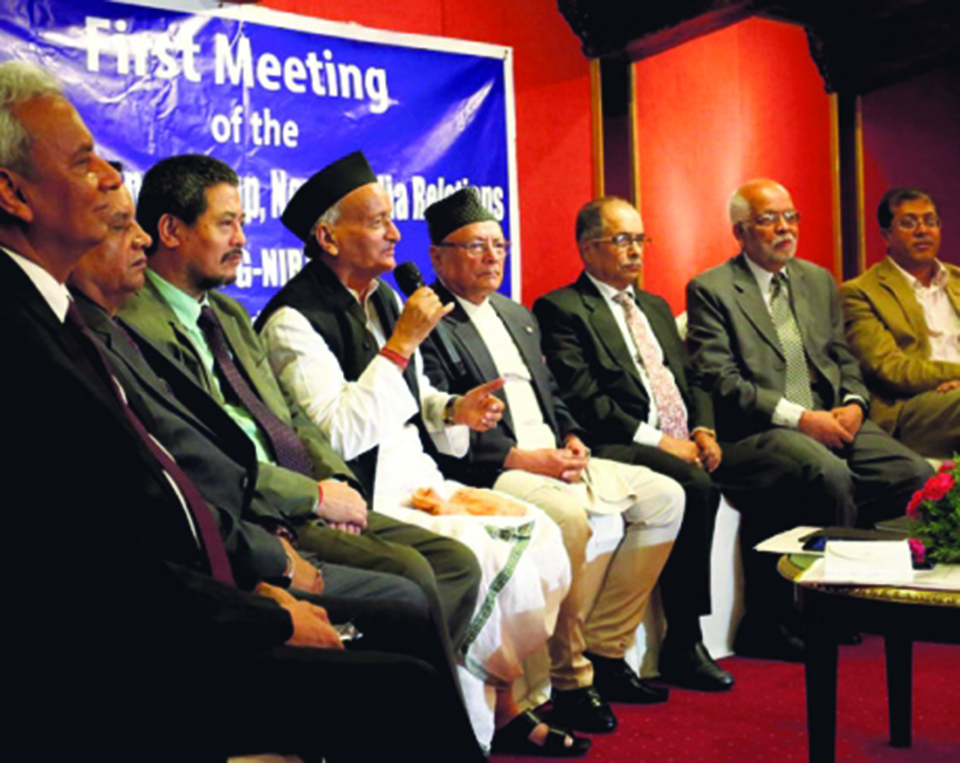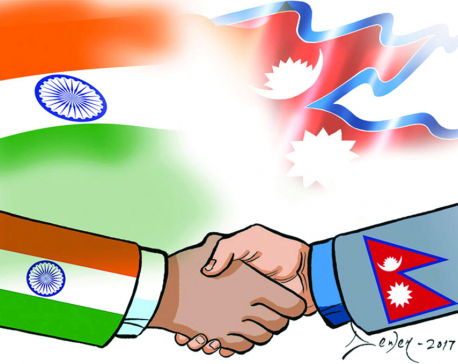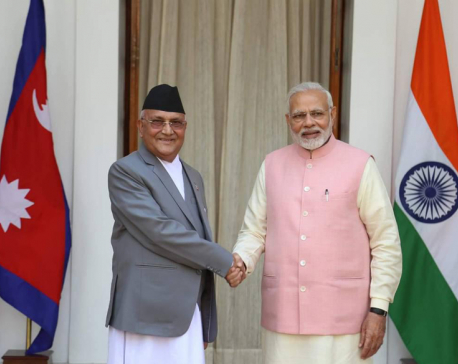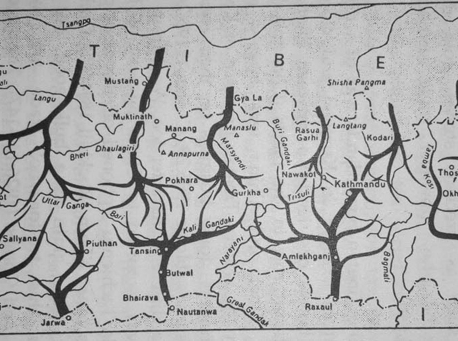
OR

If the recommendations of EPGs are ignored, it might raise fresh resentment against India in Nepal
The relevance of Eminent Persons Groups (EPGs) of Nepal and India, which were formed to offer recommendations for the governments of Nepal and India for strengthening Indo-Nepal relations, has been questioned now because Indian establishment has visibly expressed reluctance to implement their recommendations. Troublingly, Indian government has not even agreed to accept the report. As a result, EPG reports are gathering dusts.
EPG was the outcome of Prime Minister K P Sharma Oli’s effort to improve Indo-Nepal relations that had deteriorated after 2015 Indian economic embargo on Nepal. India had taken this coercive measure to “punish” Nepal for promulgating the constitution that, India argued, did not serve its interests.
Our southern neighbor has always considered Nepal as a satellite state since the Anglo-Nepal War (1814-16). East-India Company had badly defeated Nepal but it could still maintain its sovereignty, though the British rulers tried to undermine it through various treaties. When autocratic Rana rulers took the policies of pleasing the South to secure their regimes back home, Nepal’s development and stability suffered.
Year 1950 could have corrected those shortcomings for it marked a crucial transition in Nepal. The 1950’s movement for democracy overthrew Rana autocracy but threw Nepal into another Indian trap. The outgoing Rana Prime Minister Mohan Shumsher signed Indo-Nepal Treaty of Peace and Friendship, which remains in place for the last 68 years amidst controversy and protests from Nepal. The treaty contains the provision of any of the signing party abrogating it but no party has even taken such an initiative.
Nepal failed to formulate appropriate strategy to counter unequal treaty of 1950. Nepali leaders and strategists long propagated the idea that there is an insurmountable Himalayan barrier between Nepal and China and therefore Nepal is bound to be dependent on India. Taking advantage of this, India continued with British policy to entrap Nepal. The repeated economic embargo on Nepal increased anti-India feelings. The relations strained when Nepal purchased air defense weapons and equipments from China and India imposed embargo and caused a regime change in 1990.
At the core of all this has been misinterpretation of 1950 treaty by India. At the time, India accused Nepal of violating one of the clauses of the treaty that demands mutual consent before purchasing arms from any third country. Nepal accused India of imposing such an unequal provision in the treaty. In respect to equal rights to citizens of India and Nepal, given its size and population, Nepal cannot be expected to grant equal equal rights to citizens of the country with too many people and too large size. There had been call for amending these unequal provisions but it was never heeded.
Need for EPG
Education level and political awareness of Nepali youths have increased over a decade. They know about the rights of landlocked countries. They have seen Indian hegemony in Nepal and they have warned Nepali leaders not to surrender to Indian will.
Nepali youths rose in protest when India imposed economic blockade in 2015. The 2015 blockade generated mass resentment against India. Prime Minister KP Oli then turned to China and decided to go not only for ‘Belt and Road Initiative’ but also signed a protocol for trade and transit facility.
These developments made India accept Oli’s proposal to form EPGs to suggest the respective governments to address loopholes of 1950 treaty. These groups sat for rounds of meetings and joint discussions based on which they have framed recommendations and prepared a common report to submit to their respective prime ministers. But according to the media reports, India is not willing to accept the report, let alone implement the recommendations. It’s not difficult to understand why.
Indian bureaucrats are still guided by colonial mentality. They believe, like the British rulers did in the past, geopolitics of South Asia should favor India exclusively. Perhaps inspired by this thought, Indian Army Chief General Bipin Rawat said during BIMSTEC military exercise in Pune that Nepal and Bhutan are fully dependent on India due to geopolitical constraints.
But we must realize that the connectivity changes the geopolitical constraints. Once the connectivity is enhanced in the north, the present geopolitical constraints will automatically be solved. The sole result for Nepal to look to north is India.
For many Nepalis 1950 treaty is an Indian trap. Open border has not favored Nepalis—it may have favored only smugglers, cross-border terrorists, fake currency export-import and so on. Thus open border should not be a preferred choice for India either. India has encroached on Nepali borders at around 98 places. Scientific border regulation will be in the interest of both Nepal and India.
This is precisely what EPGS are learned to have recommended in their report. If their recommendations are ignored, this will raise fresh resentment against India in Nepal. Thus India and Nepal may form a reviewing commission to negotiate on respective interests and positions of two countries if there are any flaws in EPG recommendations. But EPG reports should be owned up by both the governments.
India is a big country and its support will be of big importance for the development of countries in South Asia. It should also display big heart while dealing with small countries like Nepal. The world is changing, so is Nepal. India should no longer stick to colonial diplomacy while dealing with Nepal. It simply does not work.
The author is scholar of strategy and security
You May Like This

Time to replace
Replacing 1950 treaty with new pragmatic agreement will best serve interests of both Nepal and India and strengthen their bonds Read More...

The Modi ripples
When two elephants make love, the Tibetans get squeezed out from India and, it will not be a matter of... Read More...

Where we failed on trade
Major trade routes Nepal struggles to open with China today were customary trade routes to travel and supply goods to Tibet... Read More...





Just In
- CM Kandel requests Finance Minister Pun to put Karnali province in priority in upcoming budget
- Australia reduces TR visa age limit and duration as it implements stricter regulations for foreign students
- Govt aims to surpass Rs 10 trillion GDP mark in next five years
- Govt appoints 77 Liaison Officers for mountain climbing management for spring season
- EC decides to permit public vehicles to operate freely on day of by-election
- Fugitive arrested after 26 years
- Indian Potash Ltd secures contract to bring 30,000 tons of urea within 107 days
- CAN adds four players to squad for T20 series against West Indies 'A'














Leave A Comment